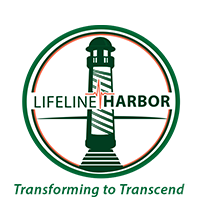Frequently Asked Questions
1What forms of payment do you accept?
Lifeline Harbor accepts several forms of payment which includes cash, credit and debit cards. You can also pay the easy and secure online with PayPal (coming soon).
Please Note: All fees expenses are due at time of appointment check in
2Do you take insurance for reimbursement?
Lifeline Harbor currently accepts the following form of health insurance: Tricare. For all other forms of health insurance, Lifeline Harbor does provide services as an out-of-network provider. Many clients choose to use their out-of-network benefits. Lifeline Harbor is willing to provide you with a receipt of services (a “Super Bill”) for you to submit to your insurance company, should you choose to use insurance to pay for your therapy.
It might be helpful if you contact your insurance provider and ask:
Do I have Mental Health Insurance benefits?
How many sessions per year does my health insurance cover?
What is my deductible and has it been met?
What is my copay per therapy session?
Does my insurance pay for this provider?
Please Note:Clients are responsible for any and all out of pocket expenses.
3What do you charge for therapy?
Lifeline Harbor provides our services to individuals regardless of financial status. If you have questions regarding our fee schedule, please contact us at 334.523.1675 or email us info@lifelineharbor.com.
4Cancellation Policy
If you do not show up for your scheduled appointment and have not given 24 hour cancellation notice, you will be required to pay the full cost of the session.
5How do I schedule an appointment?
Lifeline Harbor has made it easy to make an appointment on the website. You can you use our convenient make an appointment form or you can call us directly at 334.523.1675 or email us at info@lifelineharbor.com.
6What to Expect In a Therapy Session?
Therapy sessions are private and personal sessions between an individual - the client, and the therapist/counselor.
The professionally licensed therapist collects all pertinent information about your situation during the first session and together with you, they formulate a treatment plan that best suits your particular needs.
In your subsequent sessions, you begin to work on the goals you listed, with the therapist helping you to learn new coping skills where there were none or change particular behaviors that may be causing distress presently.
7Will my information be kept private?
Yes. Confidentiality is a key component of the counseling relationship, allowing you a safe place to work through personal issues. Your right to privacy will be carefully maintained and will not be disclosed without your written permission, except in cases of possible harm to yourself or others (especially children or the elderly) or a criminal court subpoena. For your rights under HIPPA please go to the HIPPA Policy page and print out our policy or visit: www.hhs.gov/hipaa

